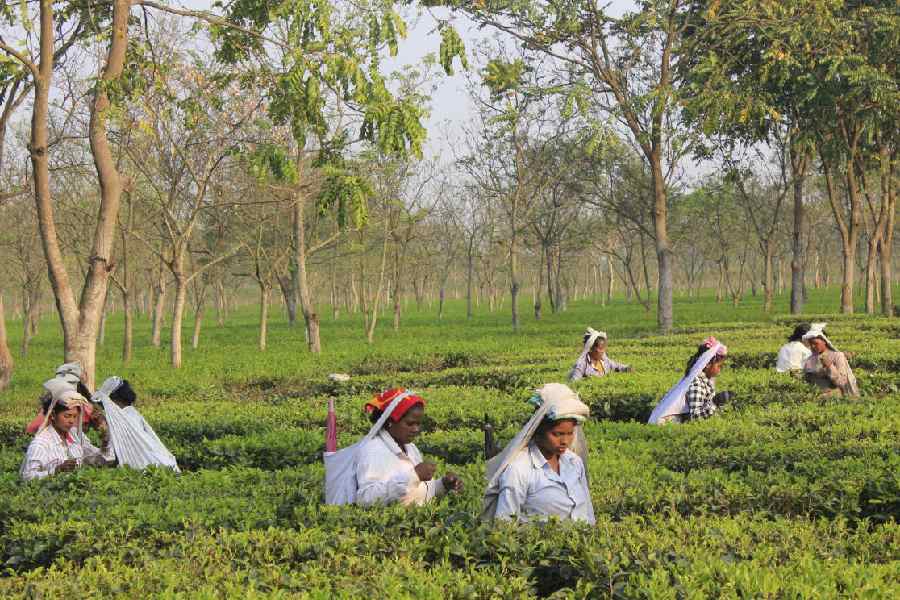The state labour department has formed a fresh committee to recommend minimum wages for tea workers of north Bengal with a one-year tenure.
In a notification issued by the department on Wednesday, a 30-member committee headed by the secretary of the department has been constituted to work on the minimum wage rate and recommend it to the state government.
In north Bengal, fixing a minimum wage rate has been a longstanding demand of the tea industry. In February 2015, the state constituted the committee for this for the first time.
“Several meetings were held since then but the tea planters have not agreed to our demands. That is why, no decision could be reached on the proposed minimum wage rate. Last year, a committee was formed for one year. As its term has ended, another committee has been formed. We hope this committee decides on the issue,” said Ziaul Alam, a senior CPM leader from Jalpaiguri, included in the committee.
Under the order, the committee would comprise 10 government officials, 10 representatives each from the associations of tea planters and small tea growers, and 10 trade union leaders representing different tea trade unions.
Among the officials, along with the secretary of the labour department as the chairman, the state labour commissioner will be the member secretary, along with the divisional commissioner and the additional labour commissioner of north Bengal, and representatives not below the rank of joint secretary from the state departments of finance, agriculture, industry and commerce, north Bengal development, food and supplies, and from the state productivity council.
A senior trade union leader pointed out that out of 10 trade union leaders selected as members of the new committee, four are from Trinamool Cha Bagan Sramik Union which is affiliated to Inttuc, Trinamool's workers' front.
In north Bengal, tea workers receive ₹250 per day as daily wage.
“As the committee couldn't reach a consensus on wages since 2015, the state government had to intervene and propose interim hikes in tea wages. The state is sincere in addressing the issue which involves around three lakh workers,” said Nirjal Dey, the Darjeeling district INTTUC president.
In 2011, when Mamata Banerjee assumed office as the chief minister, the daily wage rate of tea workers was ₹67 only, Dey said.
“There has been a manifold increase in the wage rate. We hope tea planters cooperate with us so that we can formulate a minimum wage rate which is acceptable to all,” Dey added.
Representatives of tea planters, talking about the reconstitution of the committee, said the trade union should consider the sustainability of tea gardens and the industry as a whole before coming up with wage proposals.
“Some gardens are facing financial crisis while paying wages at the existing rate. Unless the industry gets a financial boost, a further hike in wages can pose a question over the industry's stability,” said M.P. Bansal, the chairman of the Terai Indian Planters' Association.










